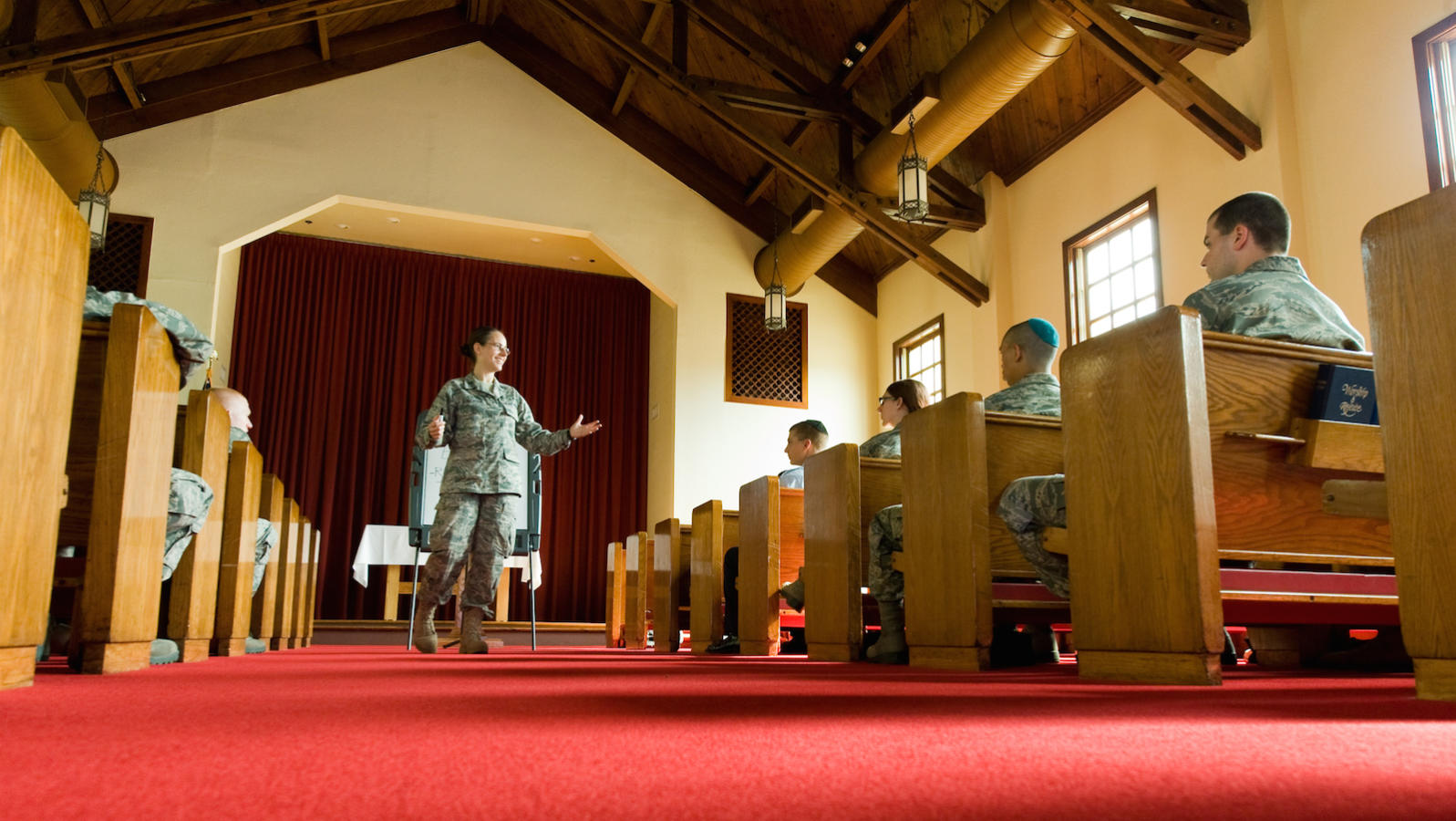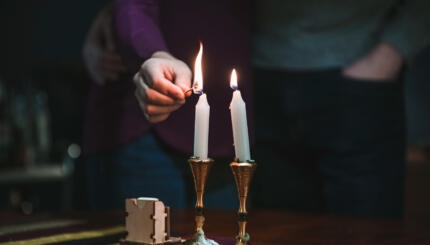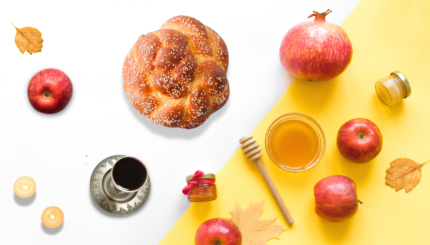The liturgy of Rosh Hashanah reflects the dominant thematic strands that are woven together in this holiday: the celebration of God’s coronation and kingship, the creation of the world and the beginning of a new yearly cycle, and the recognition of the seventh new month as the time when individuals, nations, and indeed all humankind are judged.
These themes convey a variety of feelings, and the prayers and observances of the day likewise impart a mixture of rejoicing and apprehension, of confidence and trepidation.
The idea of kingship is, as we have seen, an ancient one that may have been connected to Rosh Hashanah from its inception. The concept of creation is closely allied to that of kingship. God becomes king when the work of creation is completed and God rules over all He has made. This link between the themes of kingship and creation is reiterated in that between creation and judgment. Rabbi Eliezer offers the following commentary on this subject, in his reading of the verse, “In the seventh month, on the first day of the month” (Lev. 23:24).
“The world was created on the 25th of Elul… Thus we find that Primal Adam was created on the first of Tishrei…at the 10th hour he disobeyed God’s command, at the 11th he was judged…. The Holy One said to him: Adam, you are a precedent for your progeny. Just as you came before me for judgment and I absolved you, so shall your progeny come before Me for judgment and I will absolve them. When? On Rosh Hashanah, ‘In the seventh month, on the first day of the month.'”
With your help, My Jewish Learning can provide endless opportunities for learning, connection and discovery.
This midrash explains why days of judgment such as Rosh Hashanah can be celebrated with joy: God’s pardon is built into the scheme of judgment.
The centrality ofjudgment as a theme in the Rosh Hashanah liturgy stems from the teachings of the early Sages:
There are four periods of judgment: Passover for produce; Shavuot for the fruit of trees; on Rosh Hashanah all creatures of the world pass before Him as a troop of soldiers, as it is said, “He who fashions the hearts of them all, who discerns all their doings” (Ps. 33:15); and on Sukkot for water.” (M. Rosh Hashanah 1:2)
All are judged on Rosh Hashanah and their sentence is sealed on Yom Kippur. So taught Rabbi Meir. Rabbi Judah says: All [fruits, produce, humans, and water] are judged on Rosh Hashanah and their sentence is sealed at its appropriate time [as above]…so that the sentence of human beings is sealed on Yom Kippur. Rabbi Yose says: Human beings are judged daily, as it is said [in Job 7:18], “You inspect him every morning, examine him every minute.” (T. Rosh Hashanah 1. 13)
Judgment, as we have seen, stems from the idea that Rosh Hashanah is the time of God’s remembrance, when God fulfills His word and remembers us for good. Throughout the Mahzor [holiday prayer book],these themes repeat themselves, reminding us that we live in a created world, under the sovereignty of a God who cares for us and holds us responsible for our actions.
This article is excerpted from Entering the High Holy Days. It is reprinted with permission from the Jewish Publication Society of America.
Want to learn more about the High Holidays? Sign up for a special High Holiday prep email series.
Rosh Hashanah
Pronounced: roshe hah-SHAH-nah, also roshe ha-shah-NAH, Origin: Hebrew, the Jewish new year.
Shavuot
Pronounced: shah-voo-OTE (oo as in boot), also shah-VOO-us, Origin: Hebrew, the holiday celebrating the giving of the Torah at Mount Sinai, falls in the Hebrew month Sivan, which usually coincides with May or June.
Sukkot
Pronounced: sue-KOTE, or SOOH-kuss (oo as in book), Origin: Hebrew, a harvest festival in which Jews eat inside temporary huts, falls in the Jewish month of Tishrei, which usually coincides with September or October.
Mahzor
Pronounced: MAKH-zore, Origin: Hebrew, literally “cycle” the mahzor is the special prayer book for the High Holidays, containing all the liturgy for Rosh Hashanah and Yom Kippur.


